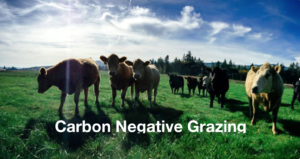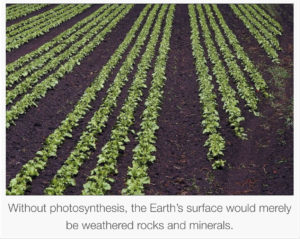
Craig Shelton Elected Honorary Member of 4σ IQ Society: United Sigma Korea

© United Sigma Korea, High IQ Society of World Intelligence Network
FSK Special Member, Craig Shelton
Craig on Great Chefs of America TV Show 1992

https://greatchefs.com/recipes/steamed-black-sea-bass-three-celeries-cooking-techniques/
100 Solutions to Reverse Global Climate Change: FOOD & AGRICULTURE SECTOR
“The Food Sector includes agricultural production (crops and livestock) as well as food preparation, consumption, and waste. This essential human activity is responsible for a major share of greenhouse gas emissions today: crop and livestock production is the source of about 1/8 of anthropogenic emissions. Land clearing (which is mostly for agriculture) is the source of another 1/8 of emissions (IPCC, 2014). Many of Project Drawdown’s supply-side agricultural solutions reduce emissions from farming and ranching, while also sequestering significant amounts of carbon.”
https://www.drawdown.org/solutions/food
Soil Restoration: 5 Core Principles
“Since the Industrial Revolution, human activities have sadly resulted in significantly less photosynthetic capacity due to the reduced area of green groundcover on the Earth’s surface. Human activity has also impacted the photosynthetic rate of the groundcover that remains.
Our role, in the community of living things of which we are part, is to ensure that the way we manage green plants results in as much light energy as possible being transferred to — and maintained in — the soil battery as stable soil carbon. Increasing the level of soil carbon improves farm productivity, restores landscape function, reduces the impact of anthropogenic emissions, and increases resilience to climatic variability.
It is not so much a matter of how much carbon can be sequestered by any particular method in any particular place, but rather how much soil is sequestering carbon. If all agricultural, garden, and public lands were a net sink for carbon, we could easily reduce enough CO2 to counter emissions from the burning of fossil fuels.
Everyone benefits when soils are a net carbon sink. Through our food choices and farming and gardening practices we all have the opportunity to influence how soil is managed. Profitable agriculture, nutrient-dense food, clean water, and vibrant communities can be ours… if that is what we choose.”
http://ecofarmingdaily.com/soil-restoration-5-core-principles/?utm_source=Acres+U.S.A.+Community&utm_campaign=cdd63f9523-EMAIL_CAMPAIGN_2018_04_09_COPY_01&utm_medium=email&utm_term=0_65283346c2-cdd63f9523-167934821&mc_cid=cdd63f9523&mc_eid=51475d27ae
The Tip-Pooling Shakeup, and What it Means for Your Restaurant
“Buried within some 2,300 pages of the federal omnibus spending bill passed in March, the Tip Income Protection Act of 2018 allows for employees who do not customarily receive tips—busboys, chefs, line cooks, and the like—to participate in tip pools while also declaring that supervisors, managers, and owners cannot participate in tip pools.” ”The new legislation repealed a 2011 U.S. Department of Labor regulation that prohibited workers who did not regularly receive gratuities from participating in tip pooling regardless of whether their employers utilized the tip credit.”
”The new legislation repealed a 2011 U.S. Department of Labor regulation that prohibited workers who did not regularly receive gratuities from participating in tip pooling regardless of whether their employers utilized the tip credit.”
The Food Dude – First TV Show Episode – starring Chef Craig Shelton
GREAT CHEFS – 1992
FIVE-YEAR STUDY BY MICHIGAN STATE UNIVERSITY PROVES REGENERATIVE GRAZING IS CARBON NEGATIVE
This five-year study from Michigan State University shows that regenerative grazing practices resulted in significant net reductions in greenhouse gas emissions.
 Scientists measured total methane and carbon emissions from a regenerative grazing operation. They also measured increases in organic matter and nitrogen in the soil. They compared their data to findings from prior studies on cattle feedlots (CAFO’S). The analysis showed a significant reduction in greenhouse gas omissions under the regenerative grazing system. The soil absorb enough carbon to cancel out methane emissions.
Scientists measured total methane and carbon emissions from a regenerative grazing operation. They also measured increases in organic matter and nitrogen in the soil. They compared their data to findings from prior studies on cattle feedlots (CAFO’S). The analysis showed a significant reduction in greenhouse gas omissions under the regenerative grazing system. The soil absorb enough carbon to cancel out methane emissions.
“The carbon sequestration rate allowed us to turn a carbon positive into a carbon negative compared to the most common management system in the finishing face.” -Paige Stanley, lead researcher, MSU
“Regenerative grazing provides ‘countless other ecosystem services including improved biodiversity, erosion control, increased soil water holding capacity, and greater drought resilience.’”-Christine Jones, Soil Ecologist
Read the study here:
https://www.sciencedirect.com/science/article/pii/S0308521X17310338
GALLUP: Failing to Develop Leaders is the Single Most Expensive Mistake a Leader Can Make.
Gallup’s Research’s latest findings: “Today’s top talent does not want a boss, they want a coach. “Performance management” must be transformed into “performance development” — an approach that focuses on growing leaders, not just keeping employees accountable.
- Current performance review processes often hurt organizations.
- Today’s top talent does not want a boss, they want a coach.
- Managers should establish expectations, coach and create accountability.”
“Gallup analytics suggest that leaders who want to develop their managers into successful leaders must focus on three things:
- establish expectations
- continually coach
- create accountability”
(Click on picture for link to full article)





